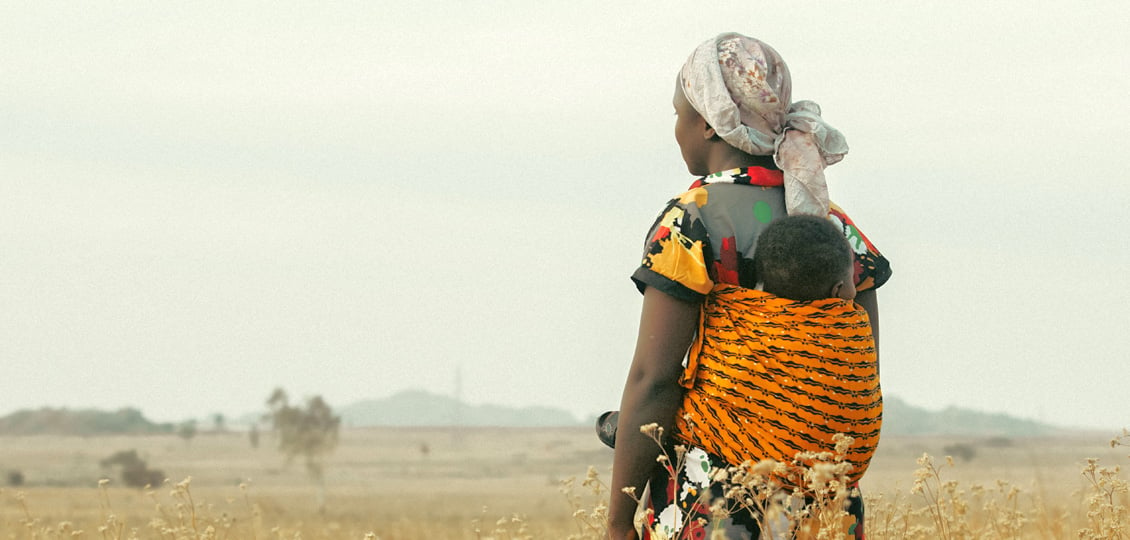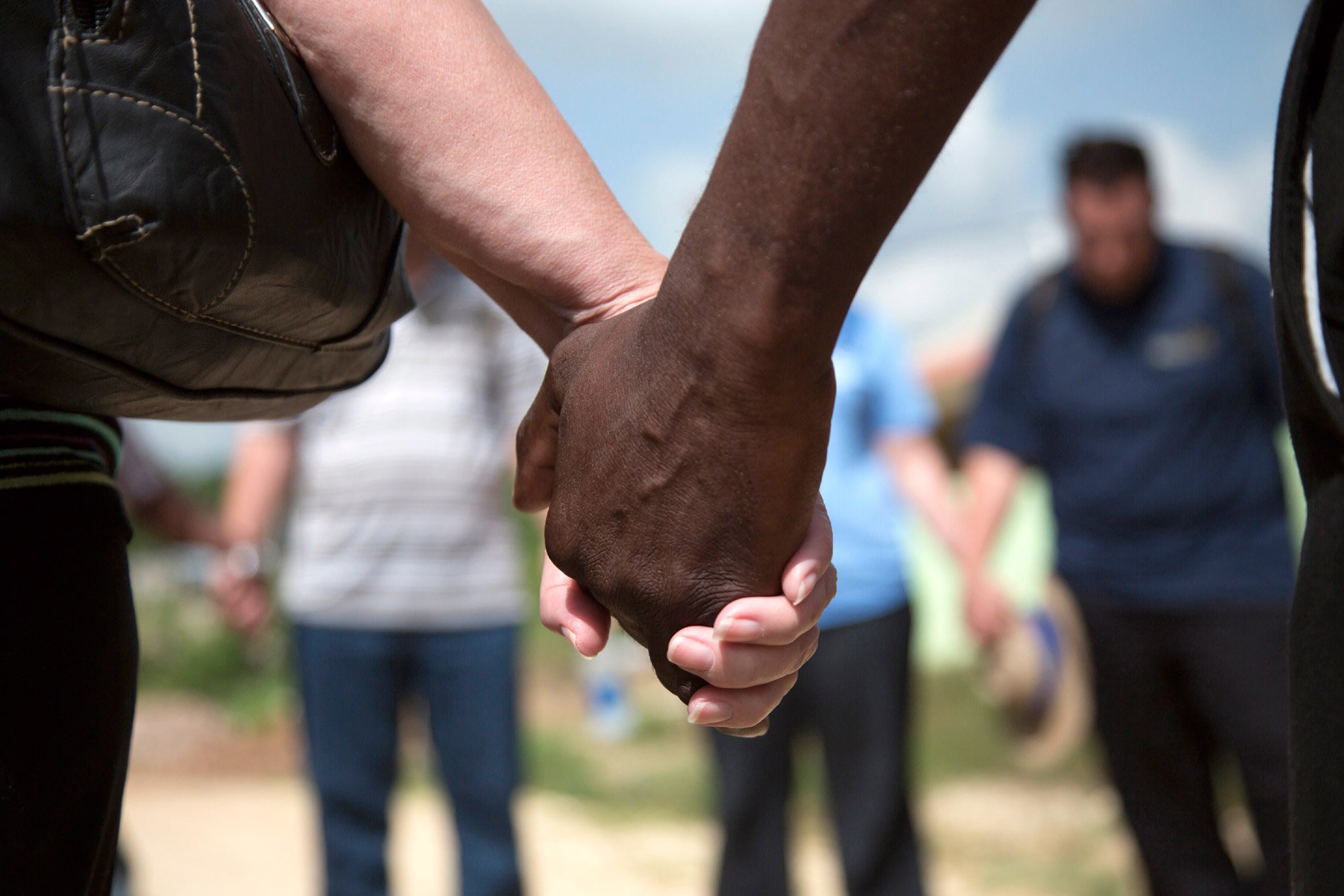She is newly married and full of dreams for a better life. However, Rifkatu* and her new husband, Zamai*, were recently forced to flee their village following a violent attack. Rebuilding their lives won’t be easy, but with Zamai by her side, Rifkatu dares to dream again. But exactly four weeks after her wedding day, she is kidnapped, and her dreams are cruelly shattered.
In northern Nigeria, the desert is advancing. Due to the scarcity of grazing land, radicalised Fulani herders regularly attack Nigerian Christians who own land. Militant Fulani have also driven Rifkatu and her husband Zamai from their land.
One day, Rifkatu returns with her in-laws to their old farm to fetch some food. In the evening, Zamai takes his father and sister back on his motorbike; afterwards, he plans to pick up Rifkatu and his other sister. A little later, Rifkatu hears a motorbike approaching and thinks it is Zamai. However, when she steps outside, she sees a group of armed men on motorbikes. “They’re Fulani,” her sister-in-law shouts. “We have to run!” The women run into the bushes, but they are quickly caught and taken away by force.
Mattresses don’t cry”
In the Fulani camp, women are repeatedly abused and humiliated. “They called us their mattresses,” says Rifkatu. “‘Mattresses don’t cry,’ they said when we cried. Or, ‘Lie still, because mattresses don’t move.'” In an attempt to escape the abuse, Rifkatu tells her captors that she is pregnant, which is not true. However, her captors show no mercy.
In her distress, Rifkatu cries out to God. One day, she prays, “You are the God who saved Shadrach and Meshach. If You are the same God as then, I know I will come home again!”
The next morning, a miracle happens. Rifkatu starts bleeding and her captors, thinking she is pregnant, fear that she is having a miscarriage. Overcome with superstitious fear that this would bring them bad luck, they sent Rifkatu and her sister-in-law back home. They are free!
Child of evil!
Zamai is overjoyed to see his wife again. However, Rifkatu is severely traumatised by the abuse and is afraid of being touched by any man, even Zamai. It takes endless patience for Zamai to regain her trust.
A year later, when the couple welcomes a baby, Rifkatu is brutally confronted with her pain once again. Due to complications during childbirth, little Maryam* has a developmental delay. As soon as her fellow villagers find out, the gossip begins. “They say Maryam isn’t my daughter, but the daughter of the Fulani,” says Zamai. “They call her an evil child. Women don’t dare come near me anymore, not even my own family,” adds Rifkatu. ‘They don’t even want to come into my house.”
They call our daughter a child of evil.”
Unfortunately, this is an all too common experience for women in Nigeria and throughout sub-Saharan Africa. When victims of sexual violence return home, they are often treated with suspicion, as if the brutal treatment they have endured has somehow contaminated them.
Little Maryam is a painful reminder to Rifkatu of everything she has been through. Sometimes, she goes days without looking at or picking up the baby. “Can’t you see what I have to go through?” she cries out to the child. “And you’re only making it worse. Just die and leave me alone!”
Trauma support
It is at this point that Rifkatu realises it is time to seek help. She came into contact with Asebe*, a counsellor at a trauma centre supported by Open Doors. “When Rifkatu first came here, she was full of anger. She didn’t smile at anyone and doubted God’s existence,” says Asebe. By listening to Rifkatu, helping her to understand her emotions and encouraging her to attend trauma sessions, Asebe tries to support her.
Slowly, Rifkatu finds her way to recovery. The ceremony, in which she is allowed to bring her pain to the cross, leaves a particularly deep impression on her. Through God’s power, she learns to forgive her kidnappers and to look at her daughter with different eyes. “Now Rifkatu is able to embrace her child and be happy with her… although she sometimes still feels pain” says Asebe. “But I continue to pray with her, and I trust that God will eventually take away all her pain.”
Nigeria ranks 7th on the World Watch List.
Please pray with us
- Thank God that, thanks to trauma counselling, Rifkatu is learning to love her child again.
- Pray that God will remove Rifkatu’s pain completely, both mentally and physically.
- Pray that her fellow villagers will see her and Maryam differently, so that they feel loved and accepted.
- The case of Rifkatu is no coincidence. There is a silent war to eradicate the church in Africa. Please pray that the violence will stop, and pray for strength for these sisters and brothers.
Food for thought
- What pain from the past do you carry with you? How do you involve God in this?
- Consider the pain and concerns of the people in this article. What would you like to pray for Rifkatu? Maryam? Zamai? Or for their fellow villagers? Or Asebe?
(* Pseudonyms)

